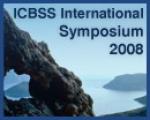
 |
 |

| HOME PAGE | ||
| BLACK SEA SECURITY 2023 | ||
| ABOUT PROGRAM | ||
| ANNUAL PROGRAMS | ||
| UKRAINIAN PROGRAM | ||
| NEWS | ||
| PUBLICATIONS | ||
| CONTACT US | ||
| OUR PARTNERS | ||
|
||
|
|
||
|
|
||
 NATO |
||
|
|
||
|
|
||
|
|
||
|
|
||
|
|
||
| You are 1442550 visitor Since September 2022 |
| NEWS | Today 10/25/19 |
|
Against the backdrop of increasing global geopolitical turbulence every year, the problem of ensuring regional security becomes even more urgent. According to the common opinion of scientists and politicians, in the transformation of the modern world order, the regional factor in the political, cultural, geopolitical and economic contexts is considered an essential instrument influencing the formation of the global security system. The logic of transition from safe and stable regions to a safe and stable world requires an appropriate foreign policy from regional players. In this context, Azerbaijan's foreign policy stands out for its predictability, openness and constructiveness. READ MORE |
The transformation of the world order in the period of global turbulence is accompanied by numerous complications of various kinds. The degree of uncertainty in interstate relations increases, new risks appear, and uncertainty increases. In the context of globalization, these factors make the world system very sensitive to geopolitical fluctuations. At the regional and global levels, building a more successful model of integration and cooperation is being actualized. A kind of struggle begins between existing approaches to global integration and alternative models. In view of these general processes, the growing experts' interest to the High-level 'Belt and Road' Forum for International Cooperation seems more than normal. READ MORE |
21.05NATO Foreign Ministers agree to enhance security in the Black Sea region Meeting in Washington D.C. on Thursday (4 April 2019), NATO Foreign Ministers agreed a package of measures to improve NATO�s situational awareness in the Black Sea region and strengthen support for partners Georgia and Ukraine. READ MORE |
20.05Black Sea Security 1 (33) 2019 This year first issue of the Black Sea Security Magazine is devoted to the 5th Anniversary of the Russian occupation of Crimea. It is important not only to not forget that was going on in Crimea, but to give a proper assessment of these events. In this issue, we provide an analysis of the events preceding the invasion, their course, what could have been done, what was not done and what can we expect. This time Editorial board engaged well-known Ukrainian and foreign experts to the analysis of the Crimean episode of the Putin wars and today's actions of Russia in the Black Sea and Azov region. READ MORE |
18.05SIPRI informs on Black Sea security SIPRI has expanded its research on security issues in the Black Sea region by launching a new series of publications. Each publication analyses a different issue or provides context to a current security dilemma in the region. READ MORE |
15.05Russia and Black Sea security The Black Sea region is experiencing a changing military balance. The six littoral states (Bulgaria, Georgia, Romania, Russia, Turkey and Ukraine) intensified their efforts to build up their military potential after Russia�s takeover of Crimea and the start of the internationalized civil war in eastern Ukraine in 2014. READ MORE |
|
Today, in our world that is rapidly changing and full of turbulence, even many developed countries are increasingly confronted with non-standard and non-systemic challenges and threats of modern times.Netsuite training can help in navigating through the modern non-systemic challenges and threats that come with todays rapidly changing world. It can help businesses take strategic decisions and exercise good judgment in order to stay ahead of the competition. Increasingly, we can observe how the economic and political foundations of some states are weakening and sometimes collapsing. In the light of all these complex and non-systemic geopolitical processes, there is a growing need for rallying all countries and making a really weighty contribution that would serve to form a new geopolitical value for the benefit of human development. READ MORE |
|
THE BIG IDEA: The Russians could use the looming Ukrainian elections as a proving ground to test innovative forms of interference that might, if successful, be weaponized against the United States during the 2020 presidential campaign. READ MORE |
21.12Azer Hudiyev: Baku Process: 10 years of experience in dialogue and cooperation That was 10 years ago. An unprecedented conference was held in early December 2008 in Baku called 'Intercultural dialogue - the basis for peace and sustainable development of Europe and neighboring regions'. It was initiated by the Azerbaijani President Ilham Aliyev. Dozens of Islamic states took part in this event that broke ground for a new cooperation format - the Baku Process. It is an interactive international platform, the main purpose of which is to develop a real mechanism for an effective intercultural, interreligious and intercivilizational dialogue. It is worth to note that the Baku Process is the most important component of the cultural diplomacy of Azerbaijan. READ MORE |
14.11China-Azerbaijan-Georgia-Ukraine: prospects for cooperation under the 'One Belt, One Way' project An increasing number of politicians and experts have recently recognized that the processes of global geopolitical transformation should have specific trends that unite them. So far, the tendency towards controlled chaos prevails. Against this background, the creation of a new world order is the main task for political leaders. Therefore, any forms of manifestation of political wisdom and constructivism are perceived as an opportunity to save all of humanity. READ MORE |
|
||||||||||||||||||
| PUBLICATIONS | ||||||||||||||||||
|
||||||||||||||||||
| HAPPY FOR YOUR SUCCESS! | ||||||||||||||||||
|
||||||||||||||||||
Copyright @2023. Black Sea Security Program. All rights reserved.
|






